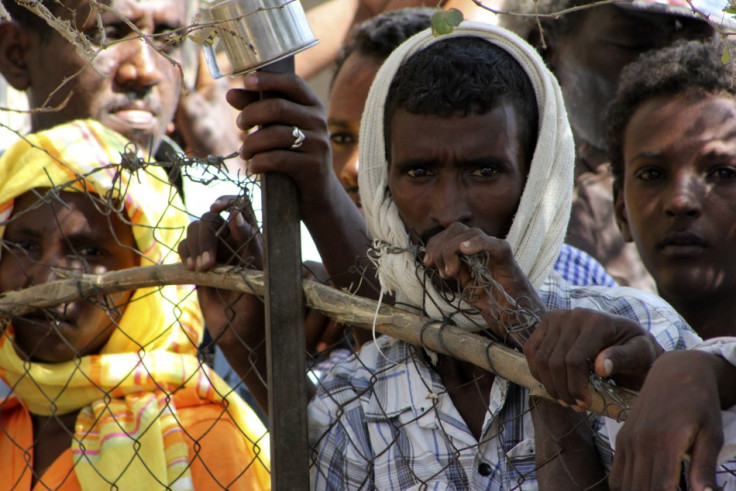FACTBOX: Eritrea, Africa's Hermit State
Torture, arbitrary detention and severe restrictions on freedom of expression in 'North Korea of Africa'

Nicknamed the North Korea of Africa, Eritrea is considered one of the continent's most opaque countries. National elections have not been held since it gained independence in 1993. The country is governed by the one-party authoritarian rule of President Isaias Afewerki, who has been in power for 20 years.
Torture, arbitrary detention and severe restrictions on freedom of expression are routine. Mandatory military service imposed on all men and women between 18 and 55 is one of the main causes of flight from the country. It has been calculated that 4,000 Eritreans leave the country every month and, according to a 2008 estimate, 40,000 Eritreans live in Britain.
Since 2004, over 200,000 Eritreans out of the 5.6 million-strong population have fled repression to border camps in eastern Sudan and Ethiopia.
In recent years, tens of thousands of Eritreans have been kidnapped by the country's senior military officers and taken to the Sinai desert in Egypt where they suffer torture and ransom demands, according to a report by human rights activists.
Between 2007 and 2012, some 25,000 to 30,000 migrants were trafficked by Eritrean and Sudanese security officers, who collude with Bedouin gangs.
Torture methods include burning, beating, and electrocution. Some hostages are slashed with knives, or have bottles melted on their skin. Some are repeatedly raped; some have been hanged.
Reporters without Borders has ranked Eritrea bottom of a list of 179 countries for freedom of expression. Access for international humanitarian and human rights organisations is almost impossible and the country has no independent media.
With the resolution 2023 (2011), the UN Security Council condemned the Eritrean government's policy to destabilise the Horn of Africa region by supporting Somalia's Islamist militant group al-Shabaab.
The 2013 annual report by the UN Monitoring Group on Somalia and Eritrea to the Security Council's Somalia/Eritrea sanctions committee revealed that the Eritrean government was still undermining stability in Somalia by paying political agents and a warlord linked to Islamist militants to influence the Mogadishu government.
Asmara has always denied any involvement with al-Shabaab militants fighting to overthrow the Somali government. It said that UN sanctions imposed in 2009 for supporting the Islamist militant group were based on lies.
The UN Security Council decided to extend for 16 months the sanctions against Somalia and Eritrea.
"The council asked Secretary-General Ban Ki-moon to re-establish the eight-member Monitoring Group on Eritrea and Somalia until 25 November, 2014," read a UN statement.
© Copyright IBTimes 2025. All rights reserved.






















